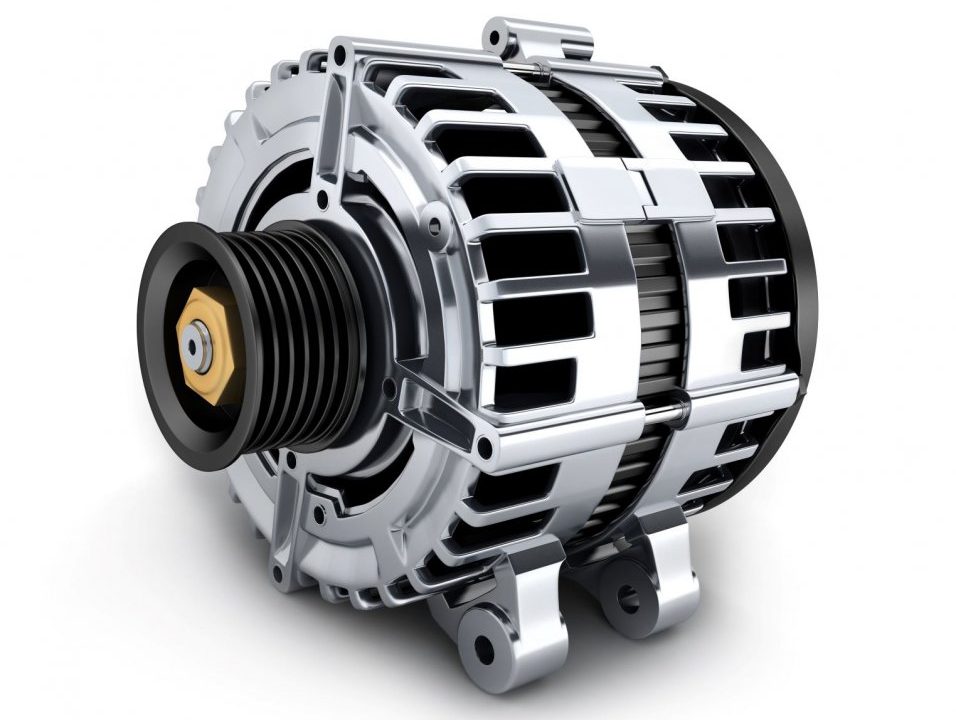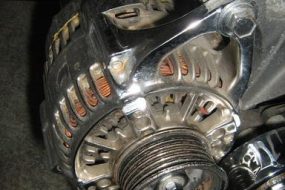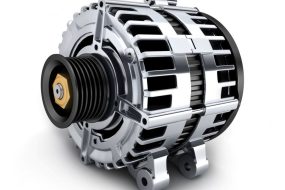
AC is no longer seen as a luxury but as an essential or must-have. But what if the AC stops working, what do you do? You need to know the various parts of the AC system and how they help in the cooling process.
But the question is, does the AC compressor affect the alternator?
Yes, a car AC compressor can be affected by a faulty alternator. If the alternator is faulty, the AC compressor may find it difficult to work because the compressor requires power to function.
What is AC Compressor Used for?
We all enjoy staying in AC-tight environments. It keeps us cool and fresh. Have you ever wondered about the various parts of the air conditioner? The compressor is one of them.
It is the most powerful part of any air conditioning system. It works in such a way that every other part feels its presence and its absence.
The compressor in an air conditioning unit controls all the other parts of the system. The refrigerant in your AC is compressed by the compressor to make it perform its cooling functions.
The compressor in an air conditioner is saddled with the sole responsibility of removing the heat-laden vapor refrigerant from the evaporator of air conditioning systems.
It’s just a case of the vapor being squeezed tightly at high temperatures by the compressor into a lighter volume.
How Does the AC Compressor Work?
This process of cooling the air in a given environment can be a little difficult to understand for some people. Now, the warm and humid air in your room is moved into the refrigerant by the compressor.
This air is worked on by the refrigerant, in the sense that the refrigerant absorbs the heat and converts it into cool air. The liquid refrigerant in the AC system is transformed into a hot vapor when the air is cool.
The refrigerant vapor goes back to the compressor while extracting the hot air out of your room. The movement of the hot air from your room is carried out through a sequence of fans.
This process is repeated by the compressor as many times as possible UNTIL the temperature of the room is at the same level as the level of the thermostat.
Does the AC Compressor Affect the Alternator?
There are many answers to this but my answer is yes. The AC compressor makes use of energy or power passed to it by the alternator. When the alternator is faulty, the AC cannot work so there is a link between both engine components.
Symptoms of a Bad AC Compressor
If you think the compressor of your AC has gone bad, there are a few ways to confirm. Having knowledge of these symptoms will help you in diagnosing what is wrong with your vehicle’s AC system.
1. Leaks of Moisture
A leak of refrigerant in your AC system can be a symptom of a faulty compressor. As you know already, refrigerant helps in the conversion of warm air into cool air in the AC.
If this liquid leaks and is not available for use, it is sure that warm air will be produced by your AC. The leak of moisture from your AC can also pose a major health challenge to the environment.
2. Tripping of Circuit Breaker
The exterior condensing unit of your AC might be losing power and causing the circuit to get tripped, this is a major symptom of a faulty AC compressor.
What causes the circuit breaker to fail is the overheating of the AC and the consumption of too much power.
3. Damaged or Loose Wiring
Damaged wires in your AC system can represent a cause of compressor failure. This is even a big issue because damaged wires in an electrical system can lead to fire outbreaks. The compressor might receive excess or insufficient voltage resulting in its damage.
4. Presence of High Temperatures
This should be the first thing you will notice when your AC compressor goes bad. There will be a presence of high temperature in the car, which means the AC is not cooling as it should.
A bad AC compressor cannot perform its function of regulating the flow of refrigerant in the system. As a result, the AC will not function optimally.
3 things can be responsible for the AC system in your car not working as it should.
- The first is a possible low level of refrigerant in the AC
- The second is a possible leakage of the refrigerant, and
- The third is a possible faulty compressor.
One of these will make the AC unable to cool its environment.
5. Stiff or Immovable Compressor Clutch
A compressor clutch aids the engaging and disengaging of the pulley from engine power so as to allow the compressor to turn when it needs to.
The clutch makes the compressor work. If the clutch becomes immovable or really stiff, it will not be able to accommodate power from the engine as it should. An immovable clutch can be replaced easily by a capable mechanic.
6. Noisy Compressor
Yes, this is another symptom of a bad compressor. Don’t get me wrong, Many AC systems work with a bit of noise in them and this is quite normal.
But when a loud noise is produced by the AC when it is switched on, it can be a symptom of a bad compressor. It could be that one of the many internal parts of the compressor has dislocated from its position and is hanging awkwardly within the compressor.
Such scenarios can cause loud noises to be made by the compressor. If you observe this in your AC, it is best for you to replace the entire compressor.
7. Broken Suction Lines
Hot airflow in your vehicle is caused by a faulty compressor. A compressor might fail to work appropriately when the refrigerant line is blocked. All you have to do when you observe this problem is take your car to a mechanic to unblock the refrigerant lines.
What Causes AC Compressors to Go Bad?
Many experts have looked into AC compressor failure and have arrived at 3 major causes of bad AC compressors. They are:
- Insufficient or Excess Refrigerant: There is a recommended level of refrigerants in an AC system must be at. If it is not in this position, it could lead to a faulty compressor.
- Dirty or Frozen Coils: The coils in your AC system can get frozen and this will not enable it to perform its heat-absorbing functions. Because the coils are placed outdoors, it is common for them to stain and be enclosed by dust. When this happens, the heat collected by the coils cannot be discharged, eventually leading to overheating of the AC system.
- Contamination: Anything asides from a refrigerant in a gas passing through the compressor, is referred to as a contaminant. Contaminants include dirt, dust, air, moisture, etc. If things like this pass through the compressor, the compressor might break and lead to damage to the AC system.
How Can I Test My Car AC Compressor?
You may find yourself in a situation where the air produced by the AC is warm and not cool. You need to test your car’s AC compressor at that point. How can you do that? Follow the steps below:
- Switch on the vehicle and put the car in park
- Stop adding Freon to the AC system
- Carry out a check on the compressor and the magnetic clutch
When you do this, you should check the air pressure switch as well to confirm that the AC compressor is actually faulty.
Final Thoughts
The AC compressor is a fundamental part of the AC system. It is the brain box and the most useful element. When it is down, the AC will produce hot or warm air which can be quite uncomfortable. As soon as you notice this in your car, ensure you get the AC system checked out to be sure the problem is from the compressor.



